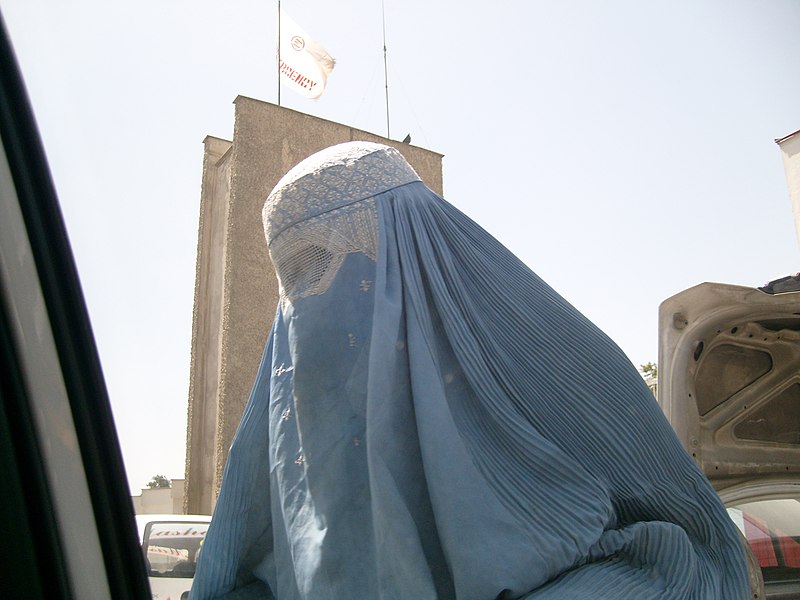The United Nations aid chief visited Afghanistan’s capital Kabul this week, relaying concerns about the Taliban administration’s policies targeting women. The concerns follow the Taliban’s latest policies that barred women from participating in humanitarian work and attending university.
UN Under-Secretary-General for Humanitarian Affairs Martin Griffiths visited Kabul on Monday and met with the Taliban’s acting minister of foreign affairs. During the meeting, Griffiths raised concerns over women’s education and work and how the Taliban’s policies affected UN operations, according to the statement by the Afghan foreign affairs ministry.
UN spokesman Stephane Dujarric said Griffiths would continue to engage with the Taliban administration “with the same message we’ve been delivering since the beginning on the need to rollback the policies that were put in place” on women in Afghanistan.
Griffith’s visit follows last week’s visit by UN Deputy Secretary-General Amina Mohammed to Afghanistan, who expressed concerns to Taliban officials in Kabul and the Kandahar province over the policies that restricted women from aid work and education.
Afghan acting foreign affairs minister Amir Khan Muttaqi said he asked Griffiths to share with the international community the “achievements and opportunities” of the Taliban administration, including granting a general amnesty for former opponents rather than “complaints and shortcomings.” The statement by the ministry also said the UN aid chief acknowledged the improved security in the country.
The Taliban administration has yet to receive recognition from the international community as diplomats have said the insurgent group must change its stance on women’s rights. Many other countries have also raised concerns about the Taliban’s policies on women and girls, such as barring girls over the age of 12 from attending schools or universities.
Mohammed went on a four-day visit to Afghanistan, the UN said Friday last week, issuing a statement after the trip making clear the consequences of restricting women and girls to their homes.
“My message was very clear: While we recognize the important exemptions made, these restrictions present Afghan women and girls with a future that confines them in their own homes, violating their rights, and depriving the communities of their services,” said Mohammed in her statement.



 Nighttime Shelling Causes Serious Damage in Russia’s Belgorod Region Near Ukraine Border
Nighttime Shelling Causes Serious Damage in Russia’s Belgorod Region Near Ukraine Border  U.S. to Begin Paying UN Dues as Financial Crisis Spurs Push for Reforms
U.S. to Begin Paying UN Dues as Financial Crisis Spurs Push for Reforms  Netanyahu to Meet Trump in Washington as Iran Nuclear Talks Intensify
Netanyahu to Meet Trump in Washington as Iran Nuclear Talks Intensify  U.S. Lawmakers to Review Unredacted Jeffrey Epstein DOJ Files Starting Monday
U.S. Lawmakers to Review Unredacted Jeffrey Epstein DOJ Files Starting Monday  US Pushes Ukraine-Russia Peace Talks Before Summer Amid Escalating Attacks
US Pushes Ukraine-Russia Peace Talks Before Summer Amid Escalating Attacks  Trump Allegedly Sought Airport, Penn Station Renaming in Exchange for Hudson River Tunnel Funding
Trump Allegedly Sought Airport, Penn Station Renaming in Exchange for Hudson River Tunnel Funding  U.S. Announces Additional $6 Million in Humanitarian Aid to Cuba Amid Oil Sanctions and Fuel Shortages
U.S. Announces Additional $6 Million in Humanitarian Aid to Cuba Amid Oil Sanctions and Fuel Shortages  Pentagon Ends Military Education Programs With Harvard University
Pentagon Ends Military Education Programs With Harvard University  Trump Signs “America First Arms Transfer Strategy” to Prioritize U.S. Weapons Sales
Trump Signs “America First Arms Transfer Strategy” to Prioritize U.S. Weapons Sales  Trump Lifts 25% Tariff on Indian Goods in Strategic U.S.–India Trade and Energy Deal
Trump Lifts 25% Tariff on Indian Goods in Strategic U.S.–India Trade and Energy Deal  Trump Endorses Japan’s Sanae Takaichi Ahead of Crucial Election Amid Market and China Tensions
Trump Endorses Japan’s Sanae Takaichi Ahead of Crucial Election Amid Market and China Tensions  Norway Opens Corruption Probe Into Former PM and Nobel Committee Chair Thorbjoern Jagland Over Epstein Links
Norway Opens Corruption Probe Into Former PM and Nobel Committee Chair Thorbjoern Jagland Over Epstein Links  Jack Lang Resigns as Head of Arab World Institute Amid Epstein Controversy
Jack Lang Resigns as Head of Arab World Institute Amid Epstein Controversy  U.S.-India Trade Framework Signals Major Shift in Tariffs, Energy, and Supply Chains
U.S.-India Trade Framework Signals Major Shift in Tariffs, Energy, and Supply Chains  Trump Backs Nexstar–Tegna Merger Amid Shifting U.S. Media Landscape
Trump Backs Nexstar–Tegna Merger Amid Shifting U.S. Media Landscape  Missouri Judge Dismisses Lawsuit Challenging Starbucks’ Diversity and Inclusion Policies
Missouri Judge Dismisses Lawsuit Challenging Starbucks’ Diversity and Inclusion Policies 































